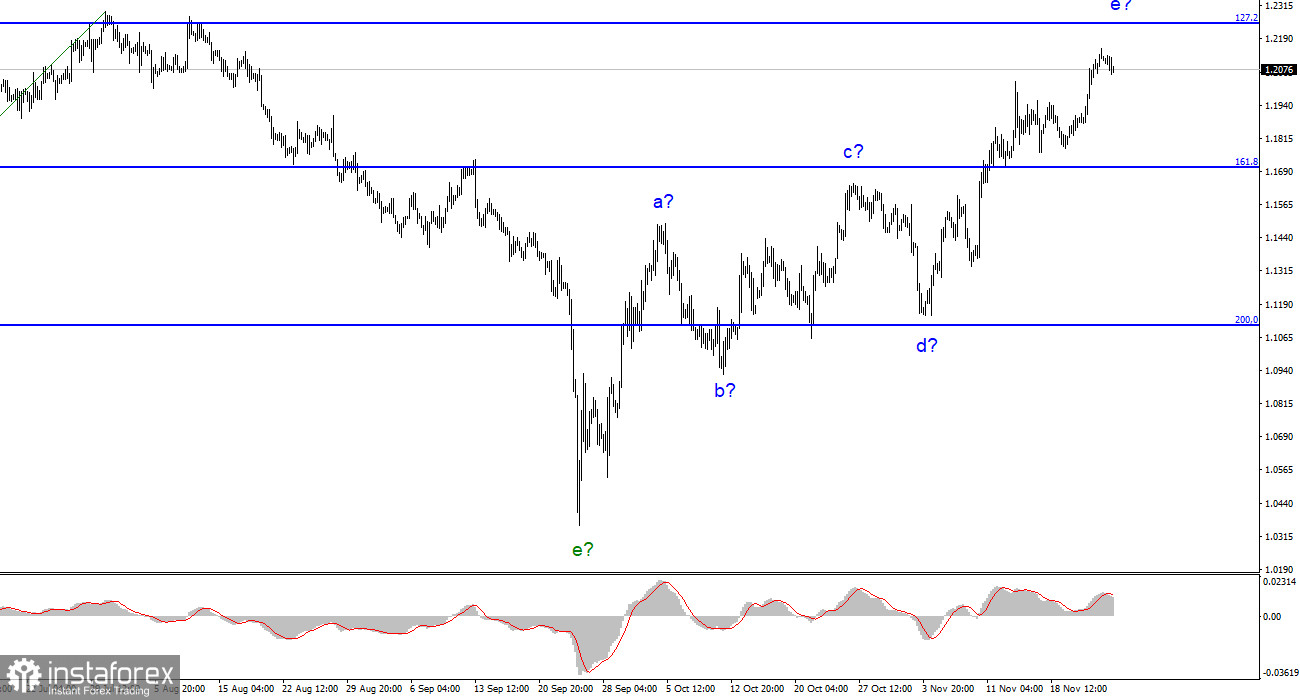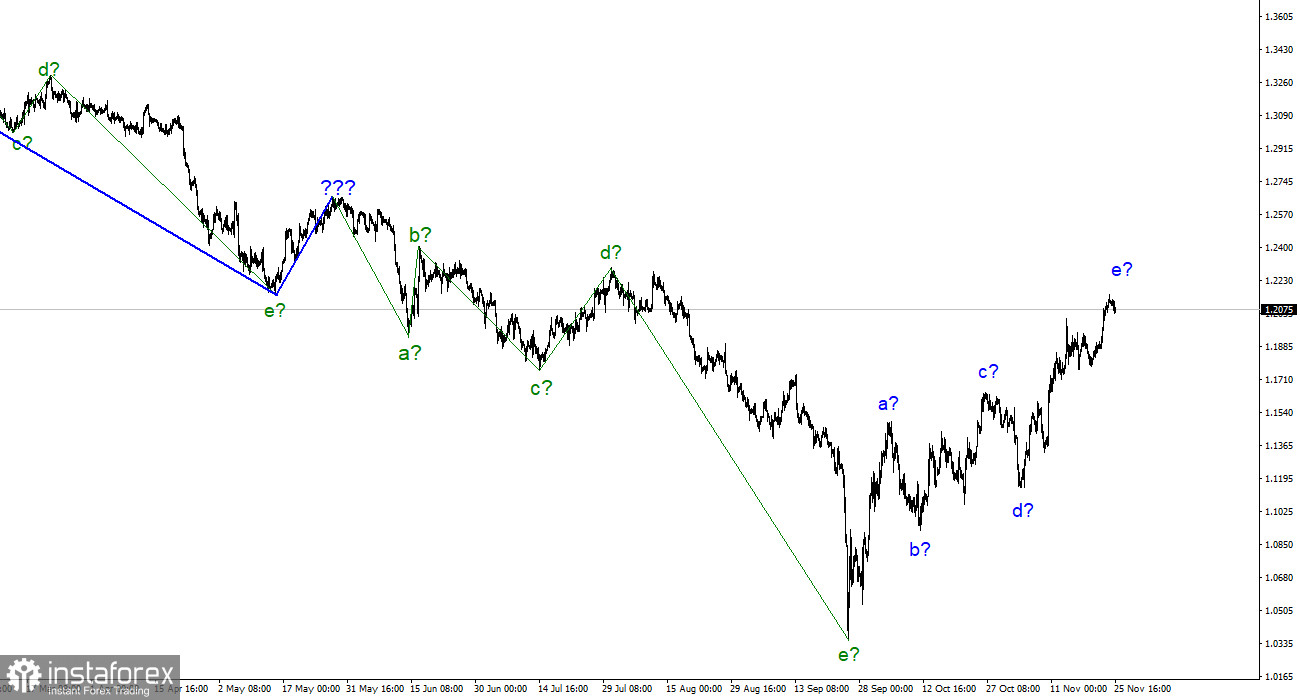
The wave markup for the pound/dollar instrument currently appears quite complex, but it still needs to call for clarification. We have a completed downward trend section consisting of five waves a-b-c-d-e. We also have a five-wave upward trend section, which has taken the form a-b-c-d-e and can already be completed. As a result, the instrument's quotes may continue to rise for a while. Still, the European currency has already begun (presumably) constructing a new downward section, and the British should do the same. Since both central banks recently increased interest rates, the news backdrop has been open to interpretation. The previous Friday, we witnessed the dollar decline against the news backdrop, which may have contributed to its potential future growth. Then came the inflation report, which decreased demand for the dollar even though the opposite outcome might have occurred. The internal wave structure of wave e was complicated by the rise in quotes during this week, but so far, only this wave has changed, not the entire trend section. This wave might have a longer form.
There is no news, and the British pound is moving more slowly now.
On November 25, the pound/dollar instrument's exchange rate fell by 25 basis points. The market's access to today's news background meant that the amplitude could have been much higher. There was not a single report or piece of news during the day. Consequently, a good week for the pound also turns out dull. Not depressing, as the pound managed to increase by 200 basis points this week despite being dull. I won't go over why there is more demand for the British again. Economic statistics have no bearing on the matter.
Next week will be completely calm in the UK. Only the USA, where Nonfarm Payrolls and the ADP report will be released, can save the day. These two reports demonstrate how the American labor market's dynamics are evolving. By the way, this dynamic hasn't been bad lately, and the US dollar can expect things to improve for itself next week. The Nonfarm Payrolls report is the only significant one and will be made public on Friday. It would help if you also traded, and one ADP report won't be able to affect the market mood four days before Friday significantly.
I'm anticipating the end of wave e, which the British claim has taken on an extended form and the upward portion of the trend. Everyone who could have spoken at the Bank of England and Federal Reserve meetings has already done so, and they are not happening anytime soon. A period of solitude and boredom follows. You can only navigate in space using waves.

Conclusions in general
The construction of a new downward trend segment is predicated on the wave pattern of the pound/dollar instrument. I can no longer recommend purchasing the instrument because the wave marking already permits the development of a downward trend section. With targets around the 1.1707 mark, or 161.8% Fibonacci, sales are now more accurate. The wave e, however, can evolve into an even longer shape.
The euro/dollar instrument and the picture look very similar at the larger wave scale, which is good because both instruments should move similarly. The upward correction portion of the trend is currently almost finished. If this is the case, a new downward trend will soon develop.
 English
English 
 Русский
Русский Bahasa Indonesia
Bahasa Indonesia Bahasa Malay
Bahasa Malay ไทย
ไทย Español
Español Deutsch
Deutsch Български
Български Français
Français Tiếng Việt
Tiếng Việt 中文
中文 বাংলা
বাংলা हिन्दी
हिन्दी Čeština
Čeština Українська
Українська Română
Română

